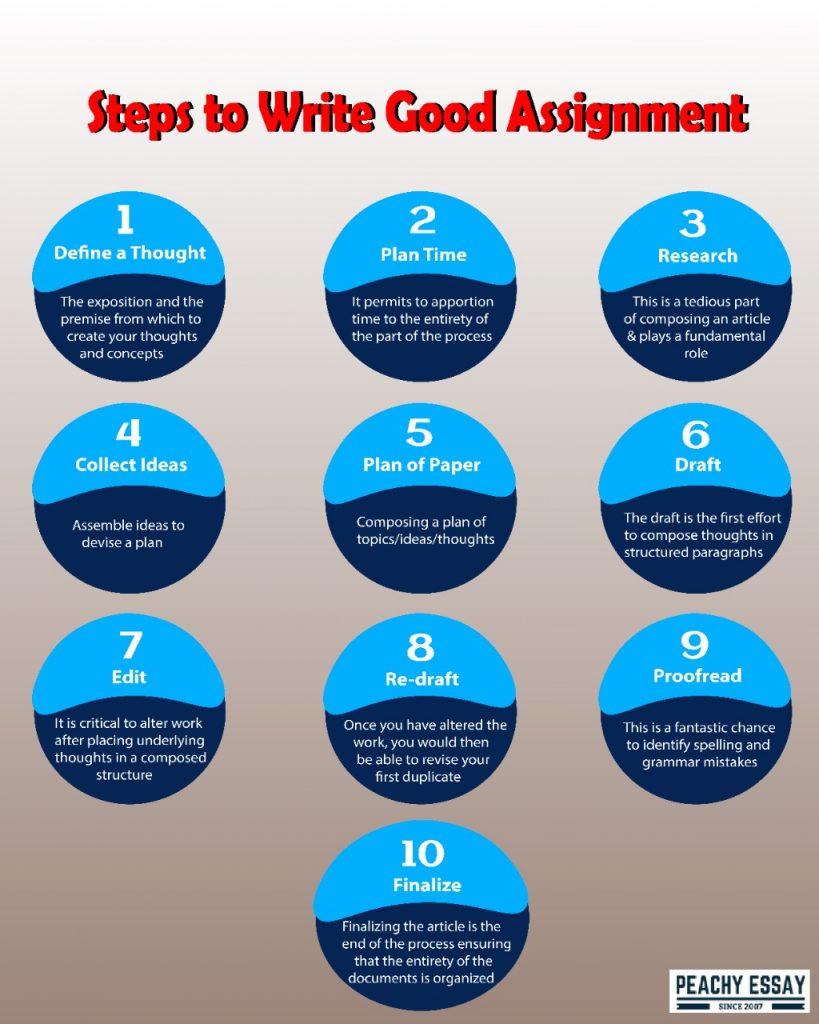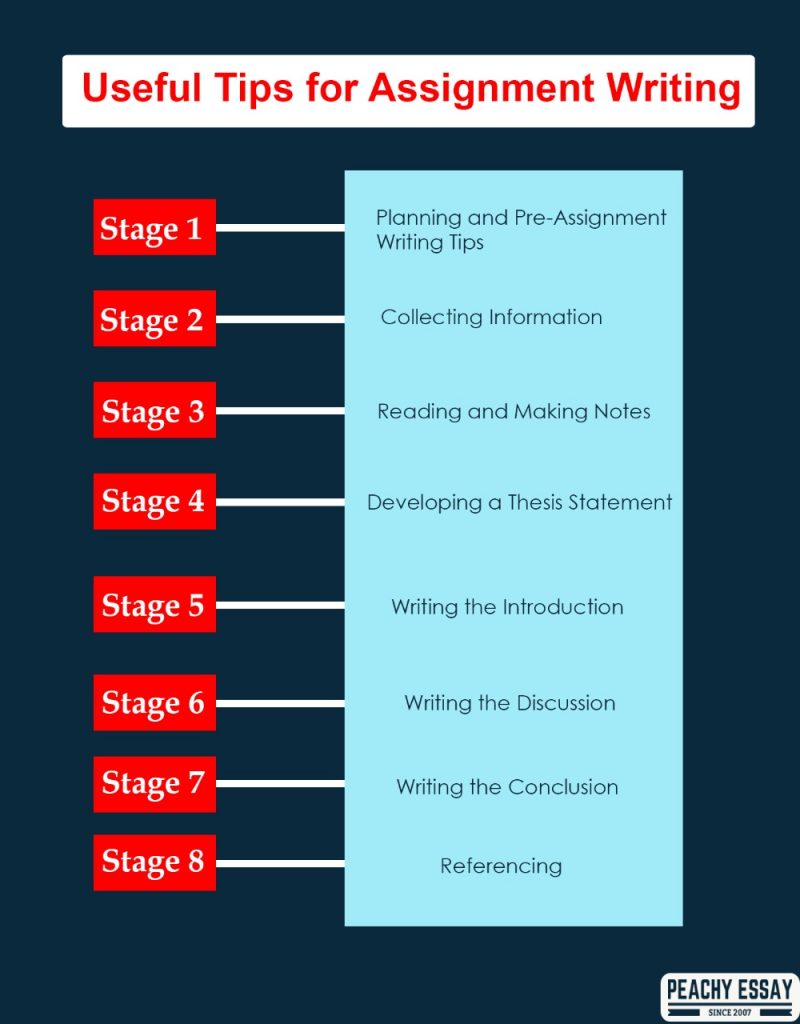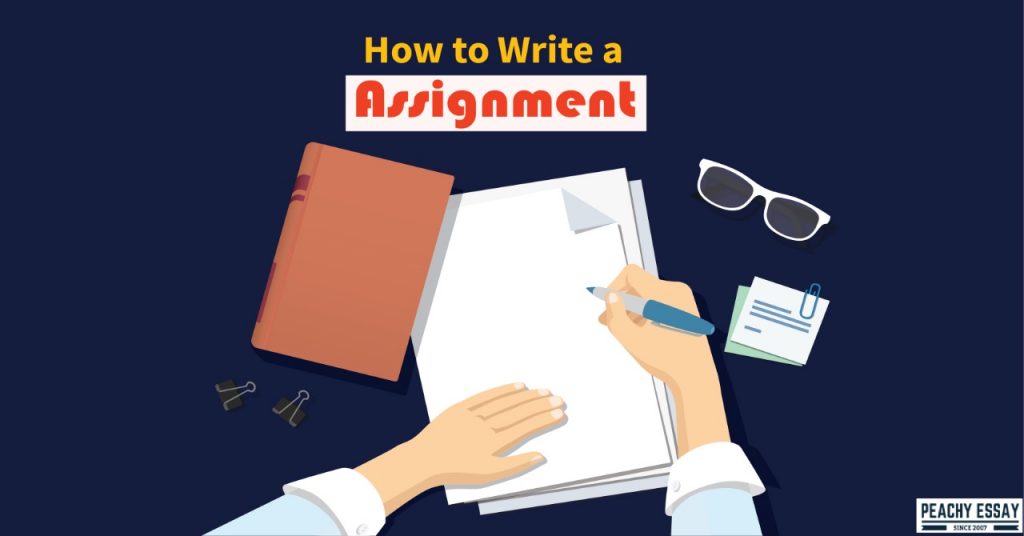Composing an assignment is a fundamental part of academic life for a student, which some of the time requires assignment help services. It begins from secondary school and keeps track of the expert’s level. With time, you may become acquainted with the tips to pace up your task work and score excellent grades.
Yet, it might turn somewhat precarious for beginners since they need to get ready for tasks within a limited time. To begin the article, you need to comprehend that the issue isn’t just getting good grades but making your tasks better.
How to Write an Assignment
Here are the steps for writing an assignment

Define a thought: This is the principal title of the exposition and the premise from which to create your thoughts and concepts.
Plan Time: This is perhaps the main part of composing an exposition yet is frequently forgotten. It permits you to apportion time to the entirety of the part of the process. Planning from the get-go in the process can decrease pressure eventually. Save a journal for the year to follow what you need to do by when. Enter task cut-off times. Set explicit undertakings to do on specific occasions. Then stay on course and modify it when required.
Research: This is a tedious part of composing an article and plays a fundamental role in ensuring that you have a successful contention and write critically.
Collect ideas: Assemble your ideas to devise a plan. This likewise may mean doing further research as topics or ideas have changed. Inspect the notes from your research, then conceptualize/mind map your first considerations on the point. Start with a focal word, issue, or question on a clear page. Add thoughts/words without erasing or dismissing anything. Make associations with what you have perused and continue to go until you run dry. Gathering thoughts and words together: At this stage, attempt to utilize a couple of words just for the sub-headings. Redraw with just the subheadings set up. Utilize these to construct your arrangement.
Plan of paper: This is composing a plan of your topics/ideas/thoughts. It is imperative to continue to return to this to stop hesitation and ensure you keep to your promise cut-off and topic/ideas. Assessment guidance may outline a structure and format.
Draft: This is your first effort to compose your thoughts in structured paragraphs. Drafts are imperfect, first endeavors. Write in complete sentences with references; however, don’t feel that it must be perfect before you record it. Now, don’t hit the nail on the head, simply get it composed. Compose point by point and section by section. This way you can begin early when you are prepared to compose or finish one segment, regardless of whether you don’t have the foggiest idea of what to write about.
Edit: It is critical to alter your work after you have placed your underlying thoughts in a composed structure. This permits you to check whether the writing is at the correct level for the reader. Try to read your document loudly. Check that the content is suitable, the structure assists with conveying meaning, the support is sufficient and plainly clarified, the language is reasonable, the sentences aren’t too long, the learning outcomes are met, and the references are precise.
Re-draft: Once you have altered the work, you would then be able to revise your first duplicate. Move sentences and sections; clarify all thoughts completely; add associations and connections, uphold contentions; erase unessential data; ensure you answer the question; abbreviate sentences; improve the presentation and conclusion. The edit and re-draft stage could be unending. Segment your exposition into parts to assist you with redrafting; once you are upbeat with the content, leave that part until the last phases of the cycle.
Proofread: This is a fantastic chance to identify spelling and grammar mistakes. Time limitations can now and then prevent you from finishing this stage. In the event that you have arranged your time adequately, you ought to have the opportunity to finish this action. Use spell checks warily and check for comparative sounding words and spelling varieties. It is acceptable to set yourself a cut-off time to complete your task 5 days before the due date. A decent tip is to recite the work so anyone can hear to help recognize inadequately composed sentences or the absence of commas and full stops.
Finalize: Finalizing the article is the end of the process ensuring that the entirety of the documents is organized in the direction illustrated in the module handbook. You ought to ensure that the page design is functional. Check that each in-text citation is referred to in the reference list.
Assignment Format
Here is the general assignment document format.
Record design
- Most tasks should be written in MS word.
- You may present your task on one of the accompanying organization: .doc, .docx, .xls, .xlsx or .rtf.
- Try not to submit HTML records, site pages, CAD documents, Visio (.vsd), PowerPoint (.ppt), PDFs (.pdf), or compress documents except if these organizations needed for your course.
- If you have such disarray with respect to your task design, you can ask your coach for help.
Text styles
- Utilize clear and readable text style like Arial, Calibri, Verdana, or Tahoma, and utilize a similar textual style in the entire paper.
- Utilize the black color text on the white shading foundation. Try not to utilize colored backgrounds or shading text instead of black except if you have extraordinary guidelines to utilize them.
Spacing
- Utilize 1.5 or double spacing and fairly wide margins. This leaves space for the guide to add remarks.
- Leave a blank line between each paragraph.
- If the questions are short, leave a clear line between each question. In the event that they are long, start each question on another page.
Headings
- Utilize bold text for headings.
- Try not to underline the heading.
- Utilize a similar textual style for heading also but you may change the text font for heading.
Title Page
The cover sheet is obligatory for all tasks, which ought to incorporate the accompanying data:
- The title of your task and the number of the task
- Your complete name and student id number.
- Course name and instructor name.
- This data should be at the center of the page.
Numbering
- All pages ought to have page numbers except the title page.
- Tables and figures should be numbered and clearly labeled. Never rehash a similar number for numerous tables. You may utilize sub number for tables and figures for instance (fig 3.a and 3.b)
- Don’t mention numbers in a reference list.
Headers and footers
Add a header and footer on each page (aside from the cover sheet). It ought to contain:
- Your name (last name, first name/s).
- Your understudy id number.
- The course number.
- The task number.
- The page number.
Word check
Your task ought not to surpass or fewer than 10% of the word limit mention in your guidelines. Recall that words in the title/cover sheet, references, and appendices are not included in the word tally limit.
References/Bibliography
The references list comes toward the finish of the task, and should begin with another page named ‘References or list of sources’.
Features of a Good Assignment
Elegantly composed tasks are not created overnight; you need to work hard to produce a decent task. Here we will examine the features of a good assignment. Let’s have a look!
- A decent task effectively deciphers the task reason.
Present a good argument instead of only recreating data from the source material.
- Treats the theme in adequate profundity with proof of careful exploration.
Shows a comprehension of fundamental standards, theories, and ideas and incorporates these into the conversation.
- Maintains focus, keeping relevance to the question
Express thoughts plainly, ought to be liberated from clumsy or awkward phrasing and errors in spelling, syntax, and jargon.
- Gives references to the source material in the required referring to style.
- Keeps to the word limit without being substantially under or over.
- Demonstrates an interest in and enthusiasm for the topic.
Powerful Assignment Writing Tips
Here are the assignment writing tips:

Stage 1: Planning and Pre-Assignment Writing Tips
Task composing tips on planning includes investigating the point, choosing what data to incorporate, assembling thoughts, and then back to more research.
- Zero in on the assignment by drawing up a timetable for the fundamental stages.
- Be sensible to ensure what amount of time things require.
- You can save time by considering the tasks soon as you get your course data.
- Remember points as you attend lectures and instructional exercises and conduct background reading.
Stage 2: Collecting Information
When you begin gathering material for your tasks, you ought to allude to your talk and instructional exercise notes, course materials, and our task composing tips. Task composing tips on data assortment include discovering data, perusing and taking notes, gathering, arranging data, and building up a layout.
- Take a library visit or look for a one-on-one instructional exercise.
- Utilize just authoritative sources from legitimate authors and publications, for example, colleges, government offices, or companies.
- Attempt to allude to articles instead of course books. Textbooks are useful for the overall overview; however, articles offer an engaged and modern view regarding the matter.
- Distinguish a significant current diary article on your theme and find further resources from its reference list.
- Decide the number of sources that should be incorporated.
Stage 3: Reading And Making Notes
Direct perusing encourages you to be more gainful. Coming up next are some broad tasks composing tips for dealing with your understanding burden and making notes:
- Sort out the books as per your necessities and read for the background as time permits.
- Before you begin perusing a book, get the big picture; survey the list of chapters and parts.
- To start with, comprehend what the writer implies by the lines you are perusing. Try not to continue with the perusing except if you comprehend the outline.
- Try not to take block texts. Sum up the thought in your own words and ensure that you keep the meaning intact.
- Cautiously note down all reference details, including publisher, place of publication, and so on. This will assist you with following the sources rapidly.
Stage 4: Developing a Thesis Statement
Here are the tips for developing a thesis statement.
- Keep in touch with a couple of sentences that catch the task’s central proposition and form part of the introduction.
- As you present thoughts in your conversation, check if it identifies with your thesis statement
Stage 5: Writing the Introduction
Your presentation should lead the reader into the conversation, establishing the pace for what follows. Here are the tips on how to write an introduction.
- The Introduction ought to be succinct, with no background data.
- It ought to plainly state what the assignment is about.
- It ought to educate the readers on why it is significant or intriguing.
- It gives a sign of what are the extents of the conversation.
- It ought to be close to one-10th (10%) of the general word check. In a short task (around 500 – 800 words), the introduction ought to be one paragraph long. In the event that the task is longer (1500 words or more) the introduction, ought to be a couple of paragraphs long.
Stage 6: Writing the Discussion
If you have just arranged the points or taken notes, it will turn out to be easy to assemble a durable conversation. Here are the tips for writing a discussion.
- All contents ought to be interrelated to one another and uphold the focal contention.
- The conversation ought to follow a legitimate order of the idea of the subject.
- The conversations ought to be written in a way that the readers can follow.
Stage 7: Writing the Conclusion
The conclusion ought to be brief and written in one or two paragraphs. It ought to be one-10th of the general word tally. Here is a couple of task composing tips featuring the conclusion.
- The Conclusion momentarily sums up the significant discussion points.
- It draws finality to the discussion, drawing the essay to a close.
- Your decision ought to exclude data not covered in the discussion
Stage 8: Referencing
Our task composing tips stress the reference of each source referenced in your task. It is significant that you recognize the authors and their ideas from where you have taken thoughts or ideas. A referencing system is the most worthy approach to refer to your sources. You will enormously profit from the accompanying task composing tips:
- Ensure you follow the famous referencing system (like Harvard, APA, MLA, etc.)
- Ensure you follow the same referencing style all through the content, either referencing your references in the bibliography or referring to the work from different sources inside the content.
With our task composing tips, you are presently very much aware of starting the task and finishing up it effectively. On the off chance that you need task composing tips, don’t hesitate to contact a professional writer for help. Keep in mind that great tasks require drafting through a few phases failure to which the structure of the task will distort.
Read more: How to Write a Strong Essay with Fewer Words
Frequently Asked Questions
What are some valuable tips for composing my tasks?
Composing a staggering task is absolutely no drop in the bucket. On the off chance that you are battling to draft a task that would help you stand out in the class, here are some gainful tips you ought to follow-
- Pay regard for the task composing structure
- Analyze the inquiry
- Conduct constant research
- Collect solid resources
- Plan before you compose
- Take your citations seriously
- Add final touches
How could online task composing tips help?
In the event that you are looking for certain famous sites that can give you first-rate tips, at that point Peachessay.com is the place for you to be. Our specialists can furnish you with noteworthy hints that can help you out in the accompanying ways-
- Assists you with creativity in advancing a line well-thought argument and line of reasoning
- Determine the number of sources that ought to be incorporated in your document
- Formulate a strong thesis statement
- Draft a fascinating introduction
- Manage the references according to the various formatting style
Who can provide the best assignment composing tips?
Profoundly experienced and capable academic experts can just give the best task composing tips. In the event that you have been looking for first-class composing tips on the web, don’t hesitate to counsel a professional writer for help. They give exceptional task writing tips that would help you draft an excellent paper as well as secure your dream grades effortlessly.




